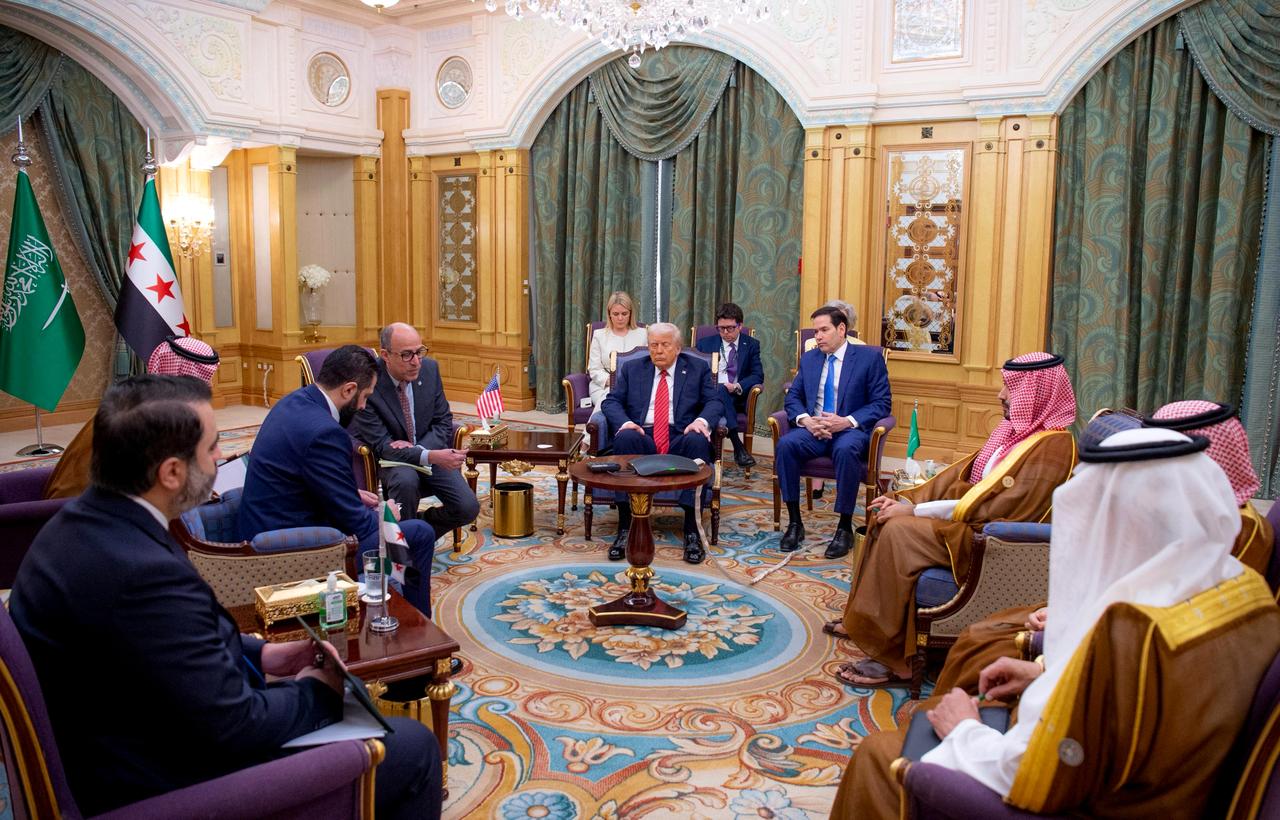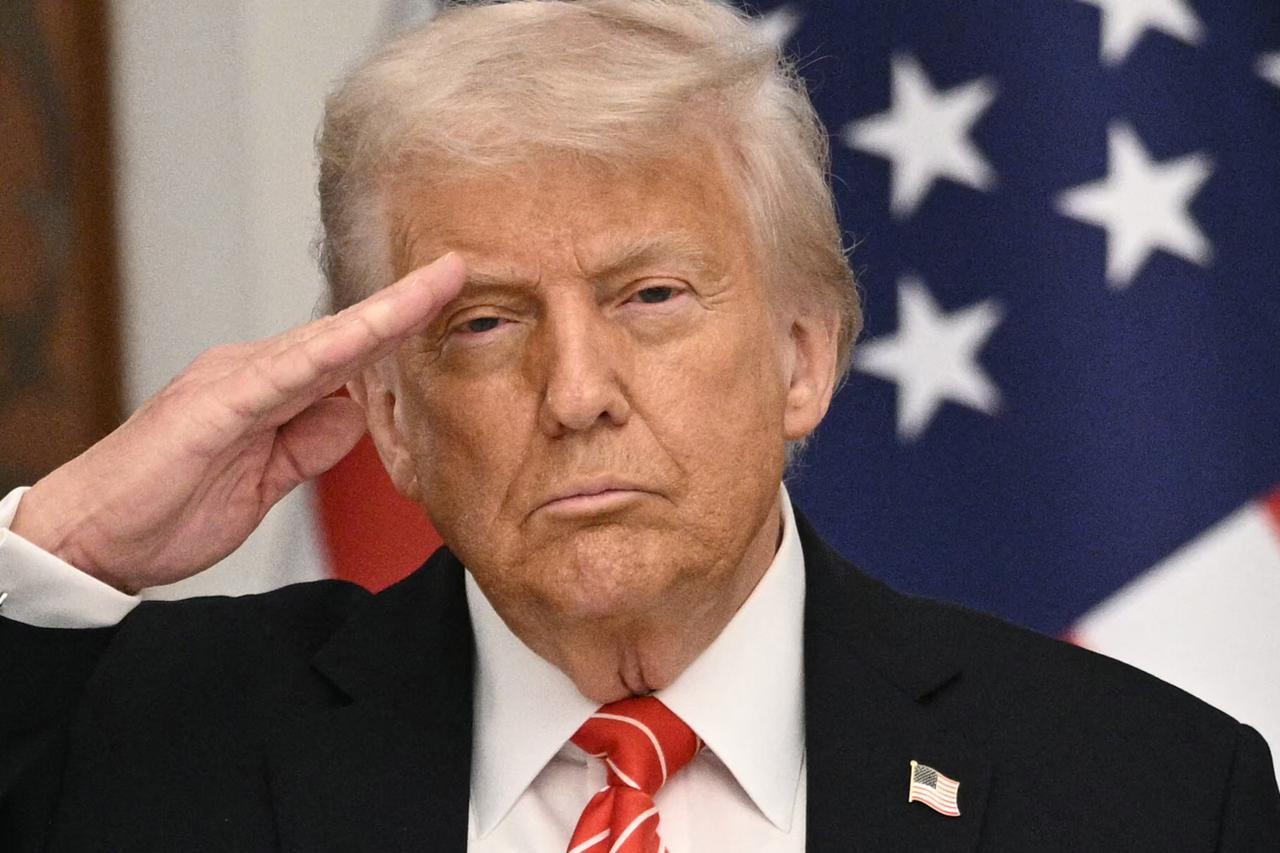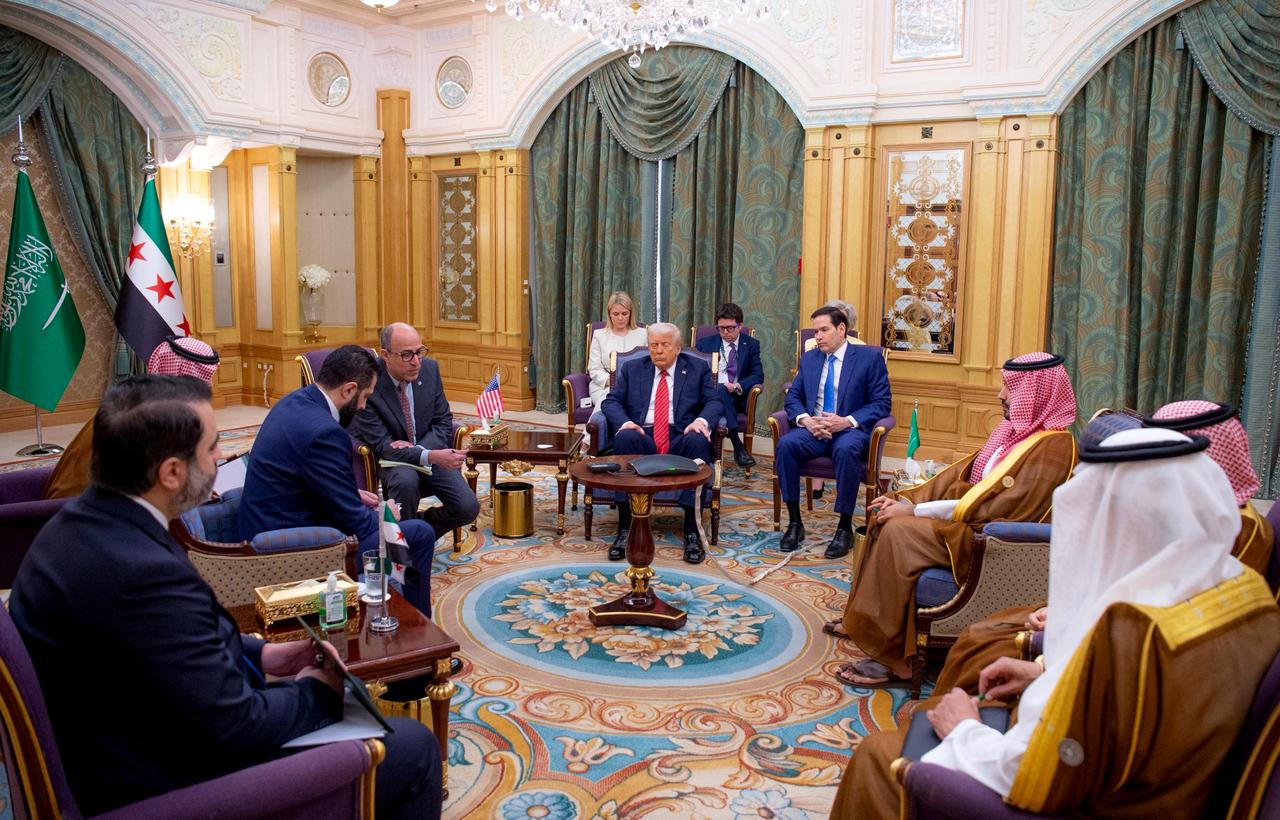
U.S. President Donald Trump has signaled a major policy reversal on Syria while engaging in intensive diplomacy with President Recep Tayyip Erdogan ahead of Trump's Middle East tour, according to officials familiar with the discussions.
The diplomatic efforts have centered on two critical issues with regional implications: establishing a cease-fire between Russia and Ukraine and lifting sanctions against Syria to enable direct U.S.-Syrian government contact.

"I love Erdogan, and he loves me," Trump declared at a recent White House appearance alongside Israeli Prime Minister Benjamin Netanyahu. "I congratulate Türkiye. I told Erdogan, 'You've done what no one could do for 2,000 years, you've taken control of Syria.'"
Trump described Erdogan as "really strong and very smart" and advised Netanyahu that Israelis should "act sensibly to resolve potential problems with Türkiye."
The U.S. president's statements reflect a significant shift in Washington's approach to both Syria and Türkiye compared to previous administrations.
In a subsequent phone conversation, Trump told Erdogan he wanted to recognize and understand the new Syrian government without prejudice, emphasizing Syria's need for international integration.
This marks a dramatic departure from the longstanding U.S. policy of isolating the Syrian government.
Erdogan, for his part, stressed Syria's territorial integrity as essential for regional security while outlining specific mechanisms for combating Daesh—a persistent concern for U.S. officials.
Following these high-level exchanges, Türkiye activated diplomatic channels at all levels. Every discussion between Turkish and American officials has focused on lifting sanctions, coordinating anti-Daesh efforts, and promoting the Syrian government's unifying stance.
Initial plans called for a preliminary meeting between the U.S. Secretary of State and the Syrian Foreign Minister, marking what would be the highest-level direct contact in years.

When Trump's Gulf Tour was announced, Saudi Arabia moved quickly to organize a summit in Riyadh. Erdogan, who was also invited, opted to participate via video conference due to scheduling conflicts.
The Riyadh meeting brought together U.S. President Trump, Saudi Crown Prince Mohammed bin Salman, Syrian President Shara, and President Erdogan (virtually) at 10:07 a.m., continuing until 10:40 a.m.
Throughout the summit, Trump repeatedly addressed Erdogan as "My valuable friend" and openly acknowledged that his decision to lift sanctions on Syria came after speaking with the Turkish leader — a statement that underscores Türkiye's influence in regional matters.
Both Trump and Erdogan emphasized several key benefits of sanctions relief. Primary among these is Syria's anticipated reintegration into the SWIFT system, which would enable international financial transfers and open channels for funds to enter the country.
This financial reconnection is seen as crucial for jumpstarting economic recovery while facilitating promised trade and investment opportunities.
The lifting of U.S. sanctions is also expected to pave the way for Syria's broader reconstruction efforts and may encourage other countries, particularly European Union members, to reconsider their own sanctions regimes.
Addressing American concerns about Daesh, Turkish officials explained that prison control would fall under Syria's new administration with substantial Turkish support.
Additionally, a coalition comprising Syria's neighboring countries will establish a joint operations center specifically designed to conduct anti-Daesh operations in central regions where the terrorist organization maintains a presence.
Further comprehensive discussions between the U.S. and Syrian foreign ministers are planned to take place in Türkiye, highlighting Ankara's emerging role as a diplomatic intermediary.
Despite Trump's stated aim to expand the Abraham Accords—normalization agreements between Israel and several Arab states—Israel was notably absent from these recent diplomatic initiatives.
Israeli officials have evidently accepted U.S. warnings regarding their approach to Türkiye, with intelligence communications between Türkiye and Israel ongoing to prevent conflicts in Syria. These behind-the-scenes discussions focus specifically on maintaining a conflict-free environment in Syrian territories.
From Israel's security perspective, obtaining assurances of the Syrian government's commitment to the 1974 disengagement agreement remains a priority.
President Shara has made statements affirming Syria's commitment to this agreement, with the possibility that the arrangement could be modified in the future should Israel adopt a more constructive approach.
Concurrent with these developments regarding Syria, Türkiye has positioned itself as a potential mediator in the Russia-Ukraine conflict. Trump has publicly stated, "I might go to Türkiye"—a" message he has already directly conveyed to President Erdogan.
Several sticking points remain in the negotiation process. Russian President Vladimir Putin has proposed initiating technical-level talks in Istanbul, while Ukrainian President Zelenskyy continues to press for leader-level meetings.
Even if Trump ultimately decides against traveling to Türkiye, U.S. officials confirmed that the Secretary of State and two special representatives will visit to participate in the discussions.
While these diplomatic efforts unfold, NATO foreign ministers are currently meeting in Antalya, with Türkiye scheduled to host next year's NATO summit. In these discussions, Foreign Minister Hakan Fidan is expected to address several critical alliance issues:
The ministers will discuss potential decisions for the upcoming June summit in The Hague, focusing on priority alliance concerns.
The agenda includes evaluating the future of European security architecture and reviewing transatlantic security burden-sharing arrangements.
Ankara continues to advocate for removing obstacles to defense industry cooperation and trade among allies—restrictions that Türkiye has long viewed as problematic.
Turkish officials maintain that eliminating these barriers is essential for developing critical military capabilities, which remains the fundamental purpose of increased defense spending.
Drawing on Türkiye's "360-degree security" approach, Fidan is expected to emphasize the necessity of ending the Russia-Ukraine war and establishing peace and stability throughout the Middle East and adjacent regions.